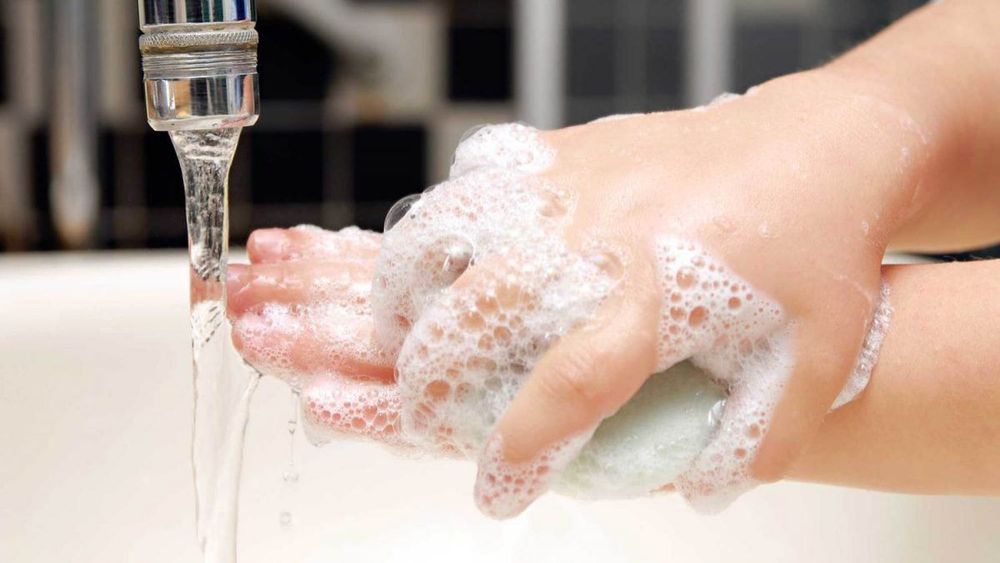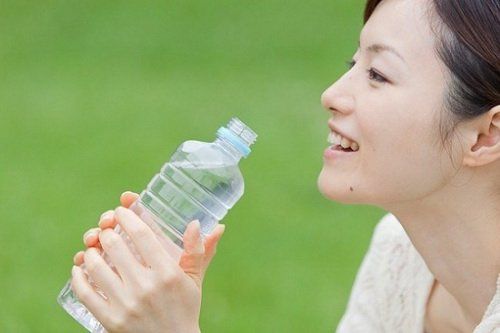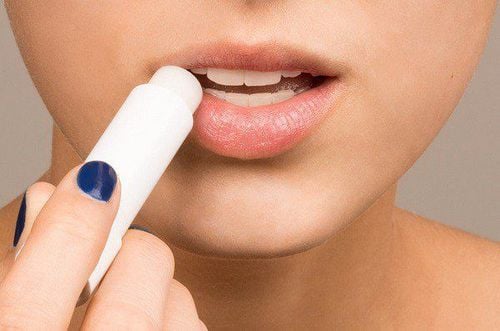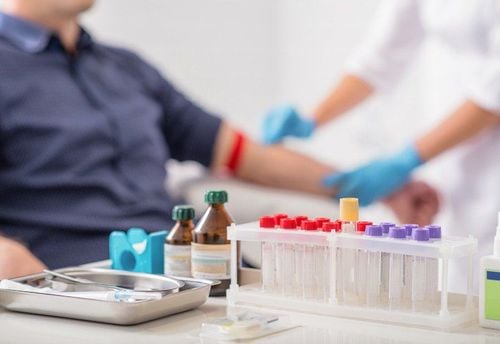This is an automatically translated article.
The article was written by Doctor Luong Vo Quang Dang - Department of Medical Examination & Internal Medicine - Vinmec Phu Quoc International General HospitalIn addition to preparing the necessary luggage for the trip, each member should pay attention to the preparation of good health and knowledge to avoid some health problems that may arise during the trip. summer calendar.
With the hot summer tropical weather, tourists are often prone to the following health problems:
1. Food poisoning, digestive disorders (Acute Gastroenteritis)
1.1 Cause
High temperature and humidity in the summer environment creates good conditions for bacteria to multiply faster in food, especially foods that are not hygienically processed and exposed to the environment. dust or lots of flies. By common sense, it is sometimes difficult to judge the quality of food before we eat it, and it is even more difficult to know if we may experience digestive disorders after eating or drinking that food. We all suffer from digestive disorders at least once in our lives. Common symptoms are intermittent abdominal pain, diarrhea, vomiting, sometimes high fever. Severe and prolonged symptoms can lead to dehydration, electrolyte disturbances and even death if the gastrointestinal infection is severe.
1.2 When suffering from diarrhea and vomiting, people often do the following mistakes
Do not dare to eat or drink for fear of vomiting or diarrhea more: FALSE
In fact, the body is losing a lot of water and electrolytes (Sodium, Potassium, Chlorine) through stool or vomit. Drinking more water than usual and continuing to eat hygienic and nutritious meals will help the body fight well and easily overcome the disease. The advice is that after each diarrhea, you should drink about 200-250 mL of cooked water. If vomiting occurs a lot, take small sips, many times, for the amount mentioned above. Arbitrarily taking anti-diarrheal drugs (eg Loperamide): WRONG
This drug reduces intestinal motility, reduces the number of bowel movements, but also because of that, toxins and bad bacteria in the intestines are not eliminated. out early, can cause a very serious and life-threatening toxic infection.
1.3 Things to do
Wash hands thoroughly with soap and water frequently, and practice general hygiene before preparing food/eating.

Cook food thoroughly and reheat food thoroughly when reusing. Store unused food in the refrigerator.
See a doctor soon if you have the following signs:
Diarrhea or vomiting that is too frequent, heavy, or lasts for days. Feeling tired, thirsty, dizzy or lightheaded: the body is losing a lot of water. There is mucus or blood in the stools Feeling a lot of abdominal pain Have a fever Are pregnant or have other chronic diseases: such as diabetes, heart disease, kidney... Parents take the initiative to fully vaccinate their children against Rotavirus. Infants aged 2 to 6 months are effective for the prevention of severe acute diarrhea caused by rotavirus in children.
2. Heat exhaustion
2.1 Cause
Picnic trips, swimming, outdoor sports activities are interesting activities that people love in the summer. However, without health preparations and preventive measures, these activities always come with the risk of sun- and heat-related illnesses.
High ambient temperature causes the body to sweat to cool down. But the high humidity of the air in the summer makes it difficult for sweat to evaporate, the body does not cool down well, and even has to receive more heat from the surrounding environment, so it produces more sweat. This is easy to happen when doing outdoor sports in the hot sun for a long time. Losing a lot of sweat will cause the body to lose a lot of water and electrolytes. If the body is not replenished with enough water and electrolytes, the body will fall into a state of heatstroke (sunstroke, heatstroke) with the following symptoms: profuse sweating, pale skin, headache, dizziness, lightheadedness dizziness, nausea, leg cramps, abdominal cramps, rapid heart rate and rapid breathing.
If not treated in time, the above symptoms will get worse and the Sunstroke will turn into a more severe form of Heatstroke which can lead to seriousness or death.
2.2 Things to do if Heatstroke occurs:
Take the victim to a shady place, apply a cool compress or take a bath with cool water to remove the residual heat in the body. Water is the most important. Add water regularly to prevent dehydration. Ideal and easiest to have is filtered water, cool or cold cooked water is fine. Mineral water, juice, tea and coffee are also available.

Eat and drink normally. Electrolytes can be replenished through daily food. If after about 30 minutes there is no improvement, we need to immediately take the victim to the nearest medical facility. Because it's possible that Heatstroke has progressed to heat stroke or other associated problems.
2.3 What not to do:
Do not rehydrate with beer, wine or other alcoholic beverages. Because alcohol is a diuretic, it will cause the body to lose more water. Carbonated drinks in general are not good for health, should not be rehydrated in this way. Do not arbitrarily use rehydration solutions and electrolytes unless directed by a healthcare professional. Never leave children or pets in a closed car in the sun.
3. Sunburn (Sunburn)
3.1. Reason
Outdoor play in the summer inevitably exposes bare skin to direct sunlight. Excessive sun exposure can cause acute skin damage, called sunburn, and a potential risk of skin cancer later in life. The causative agent of these skin lesions is ultraviolet rays (UV A and UV B), especially abundant between 10 am and 4 pm. If we are exposed to the sun regularly, our body adapts and protects itself by increasing the pigmentation of the skin, gradually making the skin in the sun-exposed area become "blacker". However, this only protects the skin from sunburn, but does not reduce the risk of skin cancer later on.
Symptoms of sunburn:
The skin becomes red, hot and painful to the touch (first degree burn) After a few days the outermost layer of skin dies and peels off, possibly forming patches. Blisters of the skin (blisters) may appear (second-degree burns), which, when ruptured, can cause skin infection. May be accompanied by the symptoms of heatstroke mentioned above.
3.2. Things to do:
Avoid activities in the sun when the sun is hot during the above hours. Wear a wide-brimmed hat, shield your skin from direct sunlight, but also need ventilation to cool the body. Note, UV rays in sunlight can penetrate more if the fabric is thinner or wet, and the protection is also reduced.

Use sunscreen with SPF > 15, more than 15 minutes before sun exposure, and repeat every 2 hours. Remember, sunscreen, even with a high SPF, is not as good as shade or clothing. If you have symptoms of a sunburn, cool your skin immediately with cool water, avoiding rubbing it on your skin. Get medical attention right away if you have blisters, pustules on your skin, or severe skin pain. Note:
Immersion in water under the sun also makes the skin more susceptible to sunburn. UV rays can penetrate the shade caused by clouds, and can reflect when in contact with surfaces such as concrete, sand, water.. Conclusion
Digestive disorders, Heatstroke and Sunburn are common health problems of tourists while traveling in hot summer. Proactive disease prevention is necessary, but sometimes it does not completely protect us. It is very important to have a good understanding of the disease and early identification of abnormal symptoms to solve the cause, early intervention and treatment.
If you choose Phu Quoc pearl island as your travel destination, you and your friends can rest assured when you need medical help for the above problems. Vinmec Phu Quoc Hospital can provide examination, consultation and treatment services for health problems related to tourism, convalescence, and recreational activities that must be exposed to the hot summer sun.
Please dial HOTLINE for more information or register for an appointment HERE. Download MyVinmec app to make appointments faster and to manage your bookings easily.














